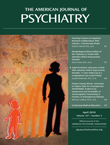Abstract
Objective
Neurocognitive impairments in schizophrenia are well replicated and widely regarded as candidate endophenotypes that may facilitate understanding of schizophrenia genetics and pathophysiology. The Project Among African-Americans to Explore Risks for Schizophrenia (PAARTNERS) aims to identify genes underlying liability to schizophrenia. The unprecedented size of its study group (N=1,872), made possible through use of a computerized neurocognitive battery, can help further investigation of the genetics of neurocognition. The current analysis evaluated two characteristics not fully addressed in prior research: 1) heritability of neurocognition in African American families and 2) relationship between neurocognition and psychopathology in families of African American probands with schizophrenia or schizoaffective disorder.
Method
Across eight data collection sites, patients with schizophrenia or schizoaffective disorder (N=610), their biological relatives (N=928), and community comparison subjects (N=334) completed a standardized diagnostic evaluation and the computerized neurocognitive battery. Performance accuracy and response time (speed) were measured separately for 10 neurocognitive domains.
Results
The patients with schizophrenia or schizoaffective disorder exhibited less accuracy and speed in most neurocognitive domains than their relatives both with and without other psychiatric disorders, who in turn were more impaired than comparison subjects in most domains. Estimated trait heritability after inclusion of the mean effect of diagnostic status, age, and sex revealed significant heritabilities for most neurocognitive domains, with the highest for accuracy of abstraction/flexibility, verbal memory, face memory, spatial processing, and emotion processing and for speed of attention.
Conclusion
Neurocognitive functions in African American families are heritable and associated with schizophrenia. They show potential for gene-mapping studies.



